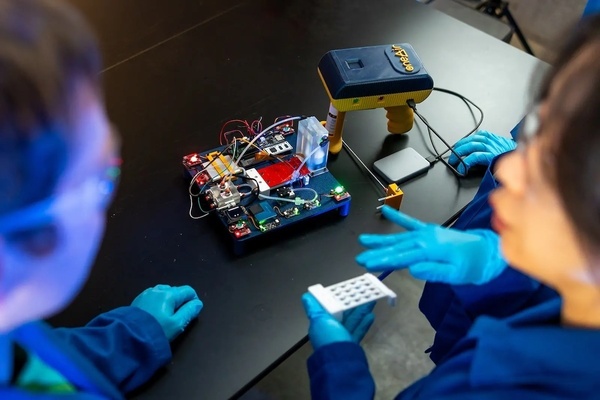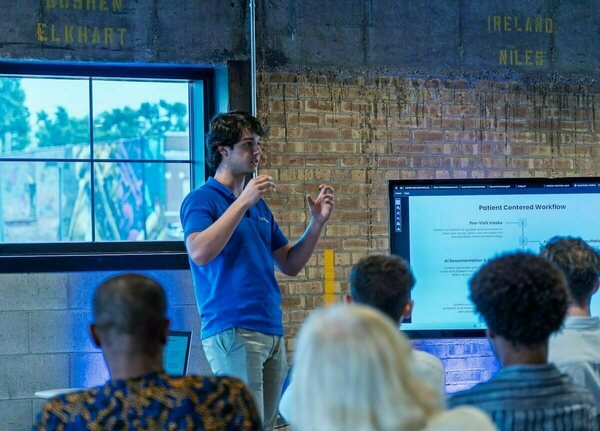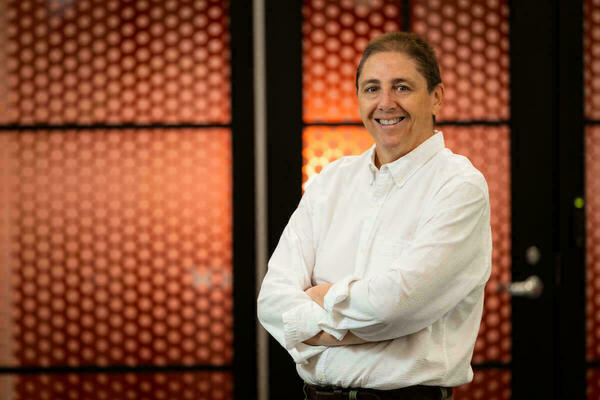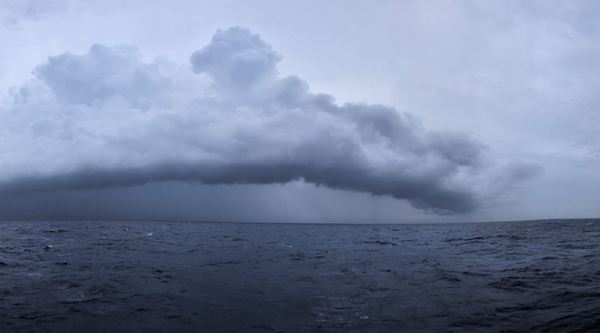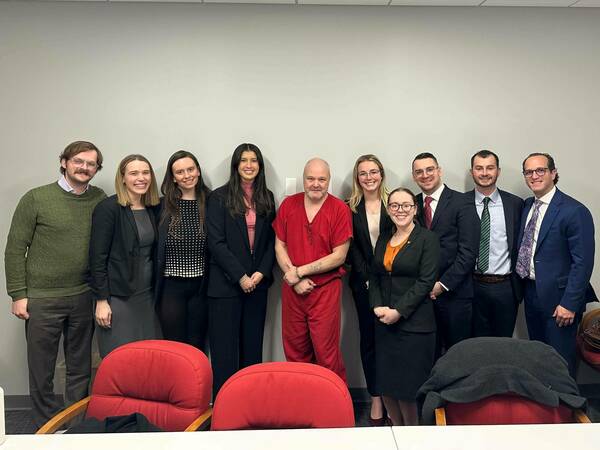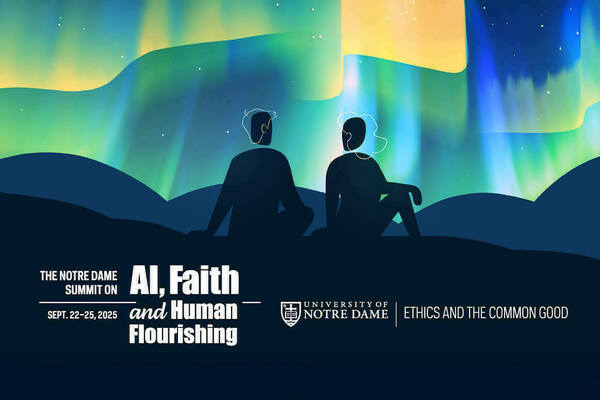Emily Wedel pursues ecological research across communities and continents
“Plants can’t move when times get tough.”
These were the words of Emily Wedel, a postdoctoral research fellow in the Department of Biological Sciences at Notre Dame. She studies the field of plant ecology, which she described as the analysis of strategies that plants implement to survive in stressful conditions and harsh environments.
“As ecologists, we’re primarily interested in trying to predict how plant communities are going to change under environmental change,” Wedel said. “We can use those resource-use strategies that plants have to try and understand what’s going to happen to these communities.”
Wedl credits a lifelong love of the outdoors and of plant communities for driving her to study ecology. She emphasized that developing an appreciation for the system that she grew up in was a catalyst for her introduction into research with her undergraduate advisor Jon Piper, now professor emeritus in the biology program at Bethel College in North Newton, Kansas.
Her previous work as a doctoral student at Kansas State University focused on how savanna plant communities will respond to variable rainfall regimes, and whether plant species thrive or fall out of the system entirely. At Notre Dame, she is studying how large mammalian herbivores affect these plant communities. Wedel offered a few questions that form the bedrock of her new work.
“How do herbivores affect plant communities? How does the loss of large herbivores change the way that savannas work? And then how does [herbivory] interact with resource availability?” she said.
While most of her time is spent on campus, Wedel prefers to study in the field. She has conducted her research in local regions like the tallgrass prairies of Northern Indiana but also in the semi-arid savannas of Kenya and South Africa.
“A lot of savanna ecology is focused around understanding what drives how much tree cover there is versus grass cover … and then how large herbivores influence those dynamics,” Wedel said.
During her work in the field, Wedel outlined some common challenges she combated, most falling under the umbrella of unpredictable weather patterns.
In one case, she recalled an experiment where her team constructed an irrigation system to inundate plants in drier environments with an ample water supply. However, the region she was studying experienced an extremely rainy season, which overshadowed all manipulations they applied.
In her recent work, she provided methods to gauge herbivore impact. One way was to deploy electric fences in a specific area and study what occurred compared to the surrounding ecosystem. Wedel emphasized that even with data collection strategies in place, the results can take time and still be unpredictable.
“It might not be the story you were expecting to tell,” she said. “But another important part of ecological research is how long term it is, so that means putting up these manipulations and keeping them going for as long as you can … to try and tease apart patterns over time, rather than [responses to] one freak event.”
Wedel arrived at the University 11 months ago and has already begun extensive research. She noted that the transition from Kansas to Notre Dame was relatively easy, claiming that “Indiana’s the same, just with more trees.”
Tyler Coverdale, an assistant professor of biological sciences, is her new primary collaborator. The two met at a scientific conference in Africa and realized they shared similar research interests, including a love for field work in savannas and a focus on changes in specific plants over broader ecosystems. The applied impact of her research is one reason to continue her work in plant ecology.
Originally published by at science.nd.edu on January 28, 2025.
Latest Research
- Fighting for Better Virus DetectionAn electronic nose developed by Notre Dame researchers is helping sniff out bird flu biomarkers for faster detection and fewer sick birds. Read the story
- Notre Dame’s seventh edition of Race to Revenue culminates in Demo Day, a celebration of student and alumni entrepreneurship…
- Managing director brings interdisciplinary background to Bioengineering & Life Sciences InitiativeThis story is part of a series of features highlighting the managing directors of the University's strategic initiatives. The managing directors are key (senior) staff members who work directly with the…
- Monsoon mechanics: civil engineers look for answers in the Bay of BengalOff the southwestern coast of India, a pool of unusually warm water forms, reaching 100 feet below the surface. Soon after, the air above begins to churn, triggering the summer monsoon season with its life-giving yet sometimes catastrophic rains. To better understand the link between the formation of the warm pool and the monsoon’s onset, five members of the University of Notre Dame’s Environmental Fluid Mechanics Laboratory set sail into the Bay of Bengal aboard the Thomas G. Thompson, a 274-foot vessel for oceanographic research.
- Exoneration Justice Clinic Victory: Jason Hubbell’s 1999 Murder Conviction Is VacatedThis past Friday, September 12, Bartholomew County Circuit Court Judge Kelly S. Benjamin entered an order vacating Exoneration Justice Clinic (EJC) client Jason Hubbell’s 1999 convictions for murder and criminal confinement based on the State of Indiana’s withholding of material exculpatory evidence implicating another man in the murder.
- Notre Dame to host summit on AI, faith and human flourishing, introducing new DELTA frameworkThe Institute for Ethics and the Common Good and the Notre Dame Ethics Initiative will host the Notre Dame Summit on AI, Faith and Human Flourishing on the University’s campus from Monday, Sept. 22 through Thursday, Sept. 25. This event will draw together a dynamic, ecumenical group of educators, faith leaders, technologists, journalists, policymakers and young people who believe in the enduring relevance of Christian ethical thought in a world of powerful AI.








